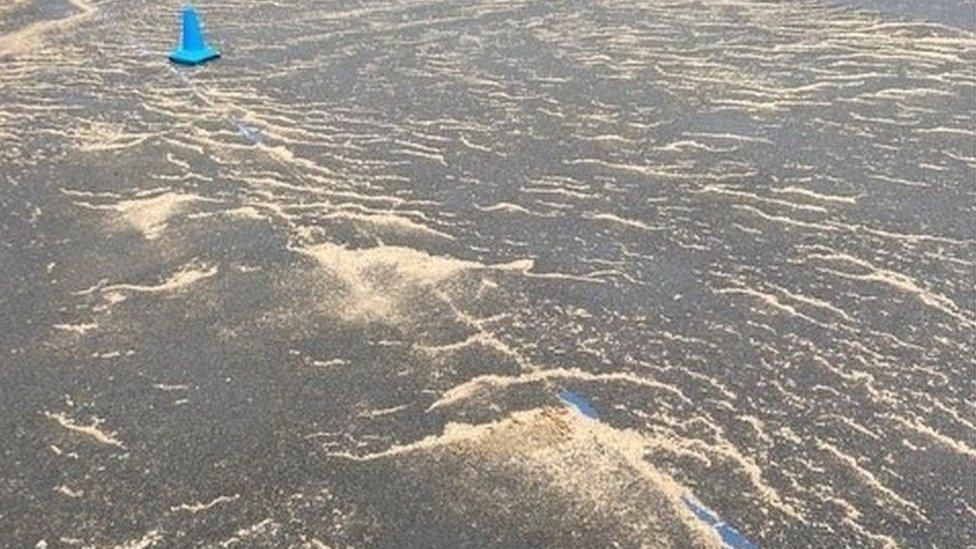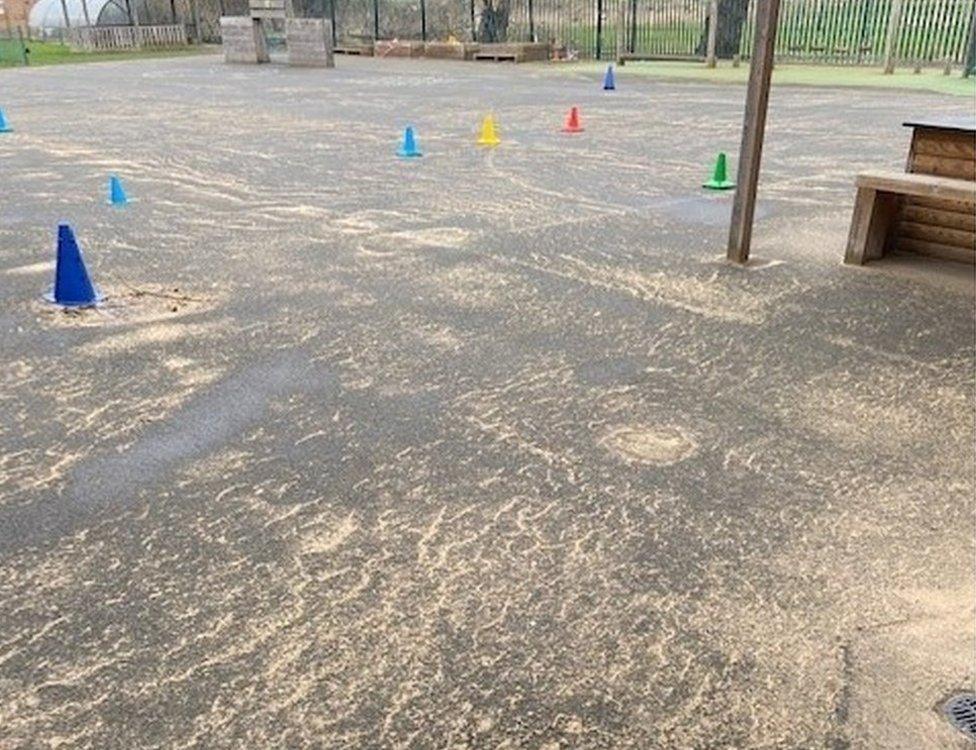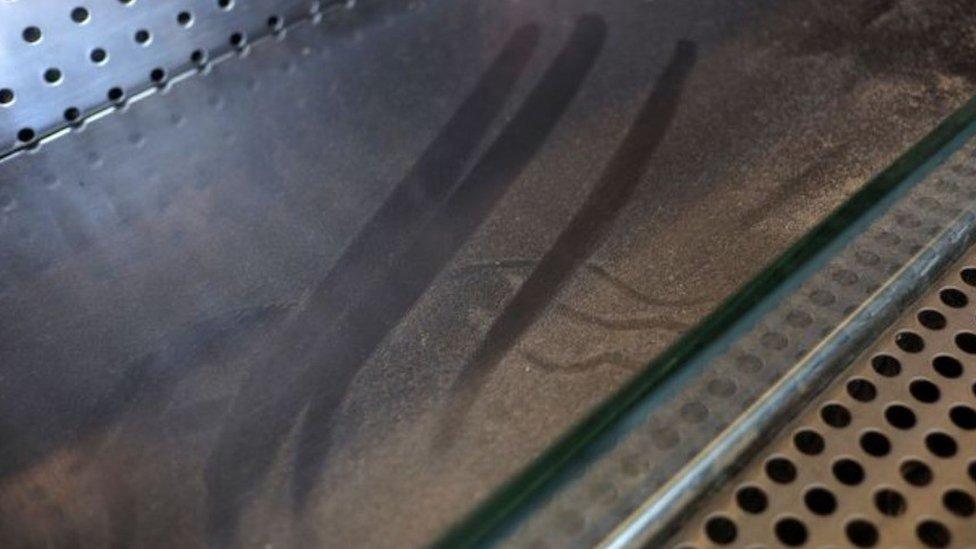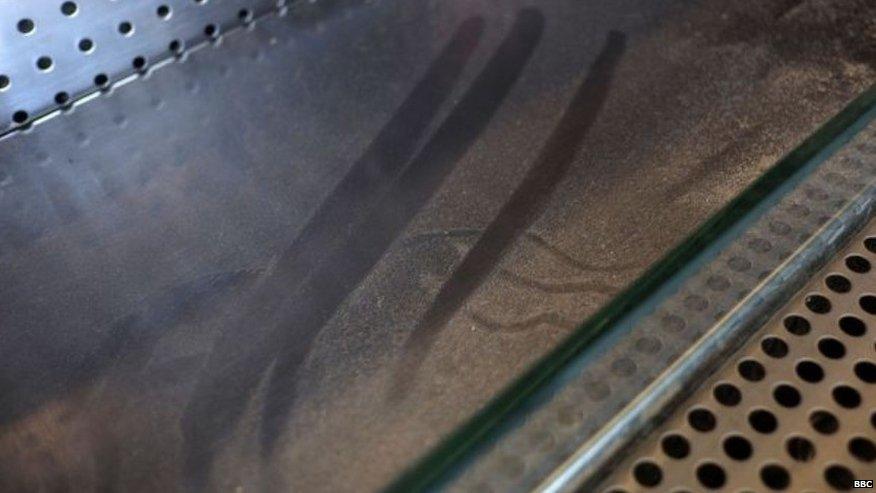Port Clarence: Firm apologises for school playground dust
- Published

The dust has coated the playground at High Clarence Primary School
A firm which has denied responsibility for a town's mystery dust problem says particles which have covered a school playground have come from its plant.
Wood pulp-like dust has fallen in and around Port Clarence in Stockton for over three years, with it most recently found at High Clarence Primary School.
Monitoring carried out in 2019 could not identify a specific cause.
Stobart Energy said it had measures to control wood dust at its nearby site, but it had escaped "on this occasion".
A spokesman from the firm, which supplies biomass fuel, said: "Recent record high winds resulting from both Storm Eunice and Storm Franklin were more than our preventative measures are designed to cope with."
The company had apologised and would remove the dust, he said.
However, independent testing had shown the long-term issue with dust collecting around the area was "commonly coming from multiple sources in the nearby area", he added.

Electrician Michael James captured the dust falling on infra-red footage
In 2019, the Health and Safety Executive found "no evidence" the wood dust presented a risk to public health, the Local Democracy Reporting Service said.
But Stockton North MP Alex Cunningham said school governors had told him pupils could not go outside on days when the dust was particularly bad.
"Residents and businesses on the Clarences are fed up with dust pollution that has blighted their lives for almost four years, and it's about time we had answers - and solutions - to this ongoing issue," he said.
The Environment Agency was carrying out another investigation, he added.
A previous study had concluded the particles did not exceed permitted levels, but said it was "likely that Stobart Biomass Products Ltd is contributing to particulate levels at the monitoring site".

Stobart Energy said the dust escaped its site due to high winds during recent storms
A Stockton Council investigation in 2020 also suggested wood fibres from the waste handling facility "could be propagating towards the school".
Previously, Stobart Energy said it had spent more than £1.25m on "emissions management" and monitoring for its biomass plant, and it used water-misting cannons to prevent dust escaping.

Follow BBC North East & Cumbria on Twitter, external, Facebook, external and Instagram, external. Send your story ideas to northeastandcumbria@bbc.co.uk, external.
- Published9 January 2022

- Published24 June 2020
